Understanding Craft in Biology
When studying biology, it's essential to develop a strong understanding of the craft involved in conducting experiments and carrying out research. This includes mastering laboratory techniques, understanding the principles of data analysis, and being familiar with the tools and equipment used in biological research.
Key Concepts
- Experimental design: Understand how to plan and design experiments to test hypotheses and collect meaningful data.
- Laboratory techniques: Learn various techniques such as DNA extraction, microscopy, cell culture, and protein analysis.
- Data analysis: Gain proficiency in statistical analysis, graphing, and interpretation of biological data.
- Instrumentation: Familiarize yourself with the use of specialized instruments like spectrophotometers, centrifuges, PCR machines, and more.
- Ethical considerations: Understand the ethical responsibilities and considerations in biological research, including the proper treatment of research subjects and data integrity.
Practical Skills
Developing practical skills is crucial for mastering the craft of biology. Here are some essential skills to focus on:
- Pipetting: Master the art of accurate and precise pipetting for measuring and transferring liquids in the laboratory.
- Sterile technique: Learn how to maintain aseptic conditions to avoid contamination in cell culture and microbiological experiments.
- Experimental troubleshooting: Develop problem-solving skills to troubleshoot experiments and adjust protocols as needed.
- Record-keeping: Practice maintaining detailed and organized records of experimental procedures and results.
Resources and References
Utilize textbooks, scientific journals, and online resources to deepen your understanding of biological craft. Stay updated on the latest techniques and advancements in the field.
Practice and Application
Engage in hands-on laboratory work, participate in research projects, and seek opportunities for internships or volunteer work in biological laboratories to apply and enhance your craft skills.
[Craft] Related Worksheets and Study Guides:
.◂Biology Worksheets and Study Guides High School. Plant structure and function
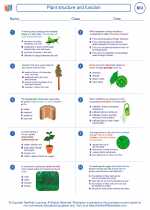
 Worksheet/Answer key
Worksheet/Answer key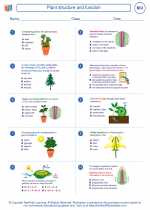
 Worksheet/Answer key
Worksheet/Answer key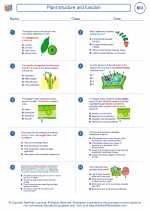
 Worksheet/Answer key
Worksheet/Answer key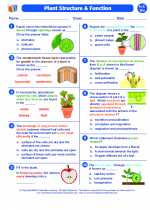
 Vocabulary/Answer key
Vocabulary/Answer key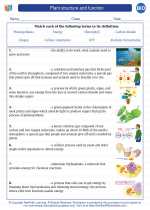
 Vocabulary/Answer key
Vocabulary/Answer key
